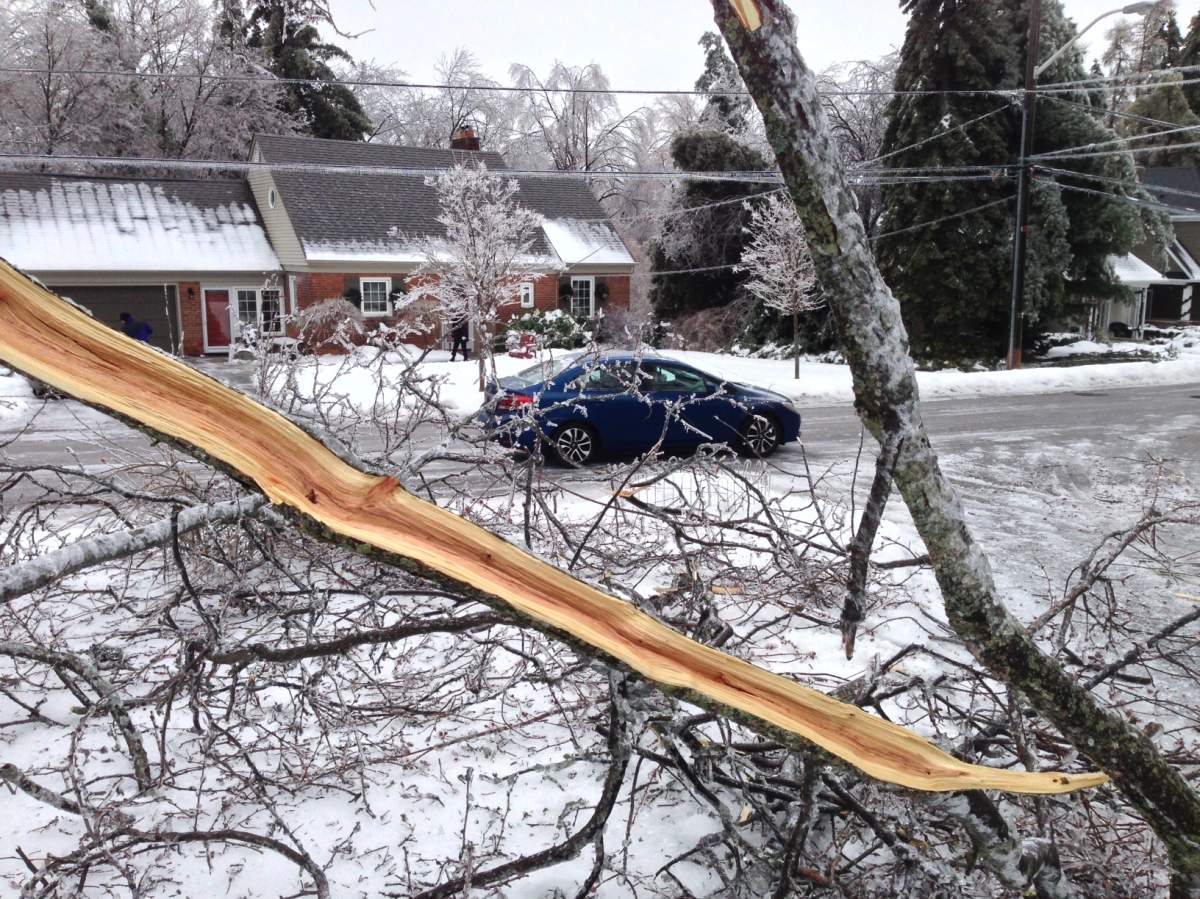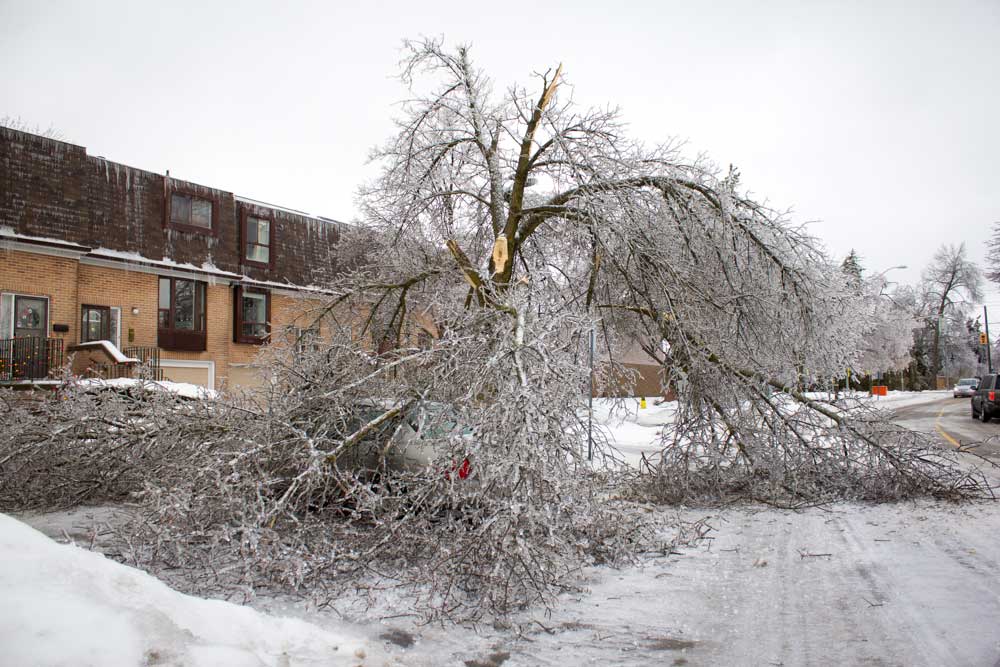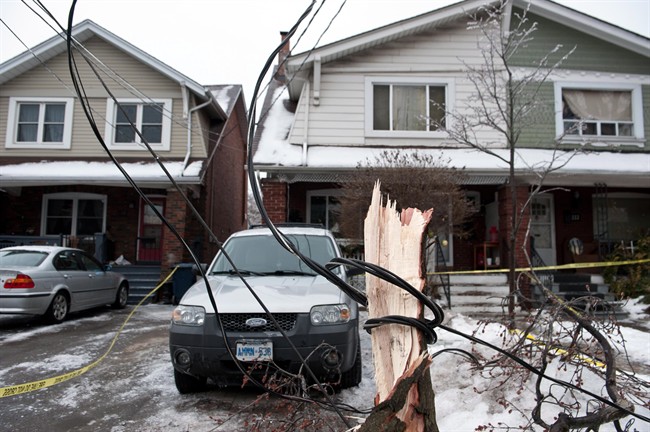Southern Ontario has just come out of its worst heat wave of the summer — and many areas have had more than 30 days with temperatures above 30 C with suffocating humidex values that have topped 40. On top of the blistering heat, there’s been a dearth of rain. Parts of eastern Canada have also seen higher than normal temperatures. Meanwhile the Prairies has faced long periods of rain, with farmers battling diseased crops.

READ MORE: Ontario farmers battling drought while Prairies battle wet conditions
Are these weather events signs of things to come for Canadians as the world continues to warm?
Short-term weather events aren’t necessarily evidence of climate change, which operates on long-term weather patterns. But Canada’s climate is changing.
WATCH: Climate warning after hottest month in recorded history. Eric Sorensen reports.

The variability we’ve seen across the country this summer is something that we will likely see in the future.
“It may be a dress rehearsal,” said David Phillips senior climatologist with Environment Canada.
“I tell people, think of the warmest summer you’ve ever experienced: it could be this one, it could be the one in 2005 or 1998 … in 50 years that’ll be the coldest summer.”
After years of mainly ignoring climate change, the federal government is acknowledging that Canadians face a myriad of challenges ahead due to climate change.
“Over the period 1948 to 2013, the average annual temperature in Canada has warmed by 1.6 °C (relative to the 1961-1990 average), a higher rate of warming than in most other regions of the world,” reads the government’s climate change website.
“Future warming will be accompanied by other changes, including the amount and distribution of rain, snow, and ice and the risk of extreme weather events such as heat waves, heavy rainfalls and related flooding, dry spells and/or droughts, and forest fires,” it continues.

These weather events mean several things for Canadians.
Health issues

Get daily National news
The elderly, children, the homeless and the economically disadvantaged will be the first to experience health issues from the increased occurrence of heat waves. These are the people who can’t necessarily afford air conditioning during stifling heat waves. They run the risk of suffering dehydration and heat stroke. But providing that to every citizen could pose problems.
“It would put a huge strain on our electrical system,” said Gideon Forman, a climate change analyst at the David Suzuki Foundation. “But we have to protect our seniors.”
A better solution, he feels, would be to use more solar energy to provide electricity to the grid, making air conditioning less of a strain on our resources.
READ MORE: 2015 shatters record for warmest year ever
Forman said that we’re seeing events that could likely be results of a warming climate.
“The consequences that Canadians are already facing, flooding … we’ve seen ice storms, we’ve seen drought conditions. So we’re already seeing those sorts of things. Erratic weather, extreme weather and contradictory weather.”
GALLERY: Toronto’s 2013 ice storm
A changing climate raises concern over other health issues. We are likely to see species in regions we hadn’t before.
Costly to Canadians
But the result of a climate that is changing will take its toll on everyone. As farmers face lower yields due to drought, floods or severe storms, that means rising prices at the cash register.
If extreme weather drives up the cost of food, low-income households may be unable to afford a healthy diet.
And then there’s the insurance industry. More frequent weather extremes mean more damage and, as a result, climbing insurance rates.
WATCH: Home insurance premiums will likely be going up as a result of the ice storm
According to the Insurance Bureau of Canada, “From 2009 to 2014 insured losses from catastrophic events were close to or above $1 billion each year – most of this was due to water damage.”
In 2013 — the year of the incredible multi-day flooding event in Alberta and the single-day flooding event in Toronto — insurance companies paid out a total of $3.2 billion.
While Canadians love to talk about the weather, the variability we’re seeing is like an unpleasant roller coaster ride. The winters of 2013 and 2014 were two of the coldest. Then, as a result of El Niño, last winter was far milder.
READ MORE: El Nino—What it is and why it matters
Jay Anderson, a retired meteorologist, said that while El Niño was a definitely a factor this past winter, there are larger systems that also play a role, like the Pacific Decadal Oscillation — which is like a prolonged El Niño in the Pacific Ocean — and what this means in a changing climate is unknown.
“We’re still trying to work out the patterns,” he said. “The more we learn about the climate, the more we know there are no simple things,” he said.
Though Canadians can prepare themselves somewhat for the changing weather we’re expected to see in the coming decades, there is a hard truth: it’s becoming more difficult to predict what’s around the corner.
“The thing we can take from this is the fact that there’s incredible variability. You can’t count on the seasons anymore,” said Phillips. “Summers are not necessarily hot, winters aren’t necessarily cold.
“And that, to me, is our greatest fear. Because how do you plan for variability? You can’t.” he said.











Comments